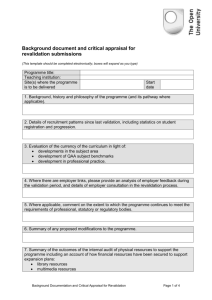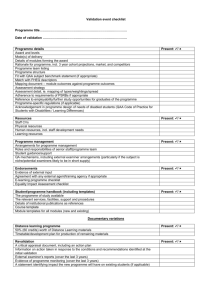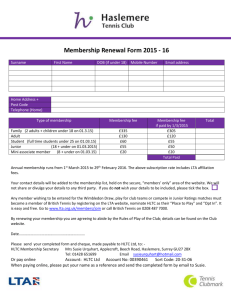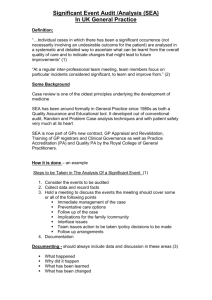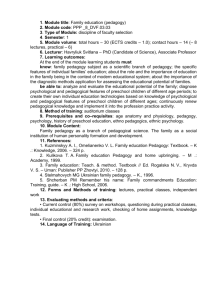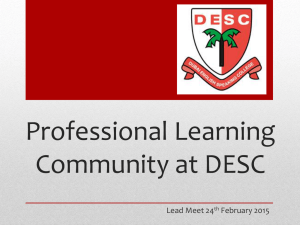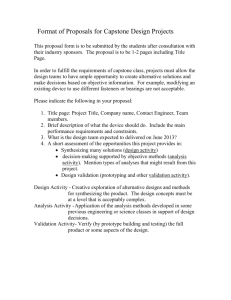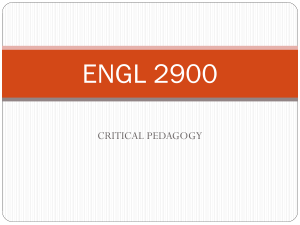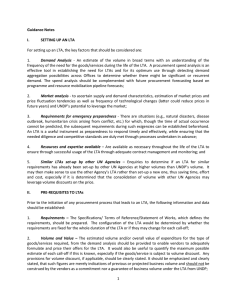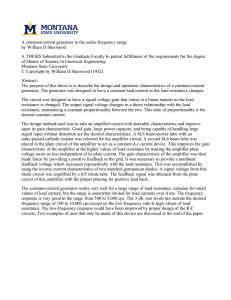Auto-ethnography: research design and ethical issues in a study of
advertisement
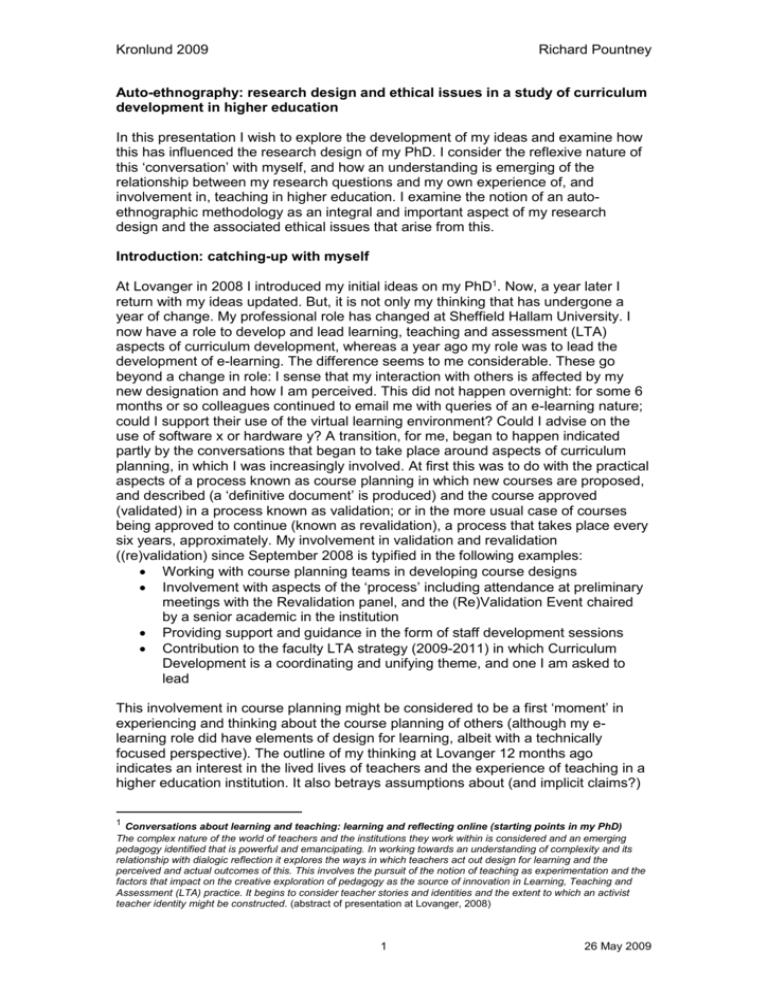
Kronlund 2009 Richard Pountney Auto-ethnography: research design and ethical issues in a study of curriculum development in higher education In this presentation I wish to explore the development of my ideas and examine how this has influenced the research design of my PhD. I consider the reflexive nature of this ‘conversation’ with myself, and how an understanding is emerging of the relationship between my research questions and my own experience of, and involvement in, teaching in higher education. I examine the notion of an autoethnographic methodology as an integral and important aspect of my research design and the associated ethical issues that arise from this. Introduction: catching-up with myself At Lovanger in 2008 I introduced my initial ideas on my PhD1. Now, a year later I return with my ideas updated. But, it is not only my thinking that has undergone a year of change. My professional role has changed at Sheffield Hallam University. I now have a role to develop and lead learning, teaching and assessment (LTA) aspects of curriculum development, whereas a year ago my role was to lead the development of e-learning. The difference seems to me considerable. These go beyond a change in role: I sense that my interaction with others is affected by my new designation and how I am perceived. This did not happen overnight: for some 6 months or so colleagues continued to email me with queries of an e-learning nature; could I support their use of the virtual learning environment? Could I advise on the use of software x or hardware y? A transition, for me, began to happen indicated partly by the conversations that began to take place around aspects of curriculum planning, in which I was increasingly involved. At first this was to do with the practical aspects of a process known as course planning in which new courses are proposed, and described (a ‘definitive document’ is produced) and the course approved (validated) in a process known as validation; or in the more usual case of courses being approved to continue (known as revalidation), a process that takes place every six years, approximately. My involvement in validation and revalidation ((re)validation) since September 2008 is typified in the following examples: Working with course planning teams in developing course designs Involvement with aspects of the ‘process’ including attendance at preliminary meetings with the Revalidation panel, and the (Re)Validation Event chaired by a senior academic in the institution Providing support and guidance in the form of staff development sessions Contribution to the faculty LTA strategy (2009-2011) in which Curriculum Development is a coordinating and unifying theme, and one I am asked to lead This involvement in course planning might be considered to be a first ‘moment’ in experiencing and thinking about the course planning of others (although my elearning role did have elements of design for learning, albeit with a technically focused perspective). The outline of my thinking at Lovanger 12 months ago indicates an interest in the lived lives of teachers and the experience of teaching in a higher education institution. It also betrays assumptions about (and implicit claims?) 1 Conversations about learning and teaching: learning and reflecting online (starting points in my PhD) The complex nature of the world of teachers and the institutions they work within is considered and an emerging pedagogy identified that is powerful and emancipating. In working towards an understanding of complexity and its relationship with dialogic reflection it explores the ways in which teachers act out design for learning and the perceived and actual outcomes of this. This involves the pursuit of the notion of teaching as experimentation and the factors that impact on the creative exploration of pedagogy as the source of innovation in Learning, Teaching and Assessment (LTA) practice. It begins to consider teacher stories and identities and the extent to which an activist teacher identity might be constructed. (abstract of presentation at Lovanger, 2008) 1 26 May 2009 Kronlund 2009 Richard Pountney on forms of pedagogy and what this will bring about (with some certainty perhaps). Looking at this now, I ask what is the nature of this ‘power’, in what ways is this ‘emancipatory’, and for whom? Also, whose notion is ‘teaching as experimentation’ and why is the creative exploration of pedagogy’ the ‘source of innovation in learning and teaching’? This sensitising to issues is a result perhaps of a number of factors not least in the undergoing the initial phase of the doctoral process. My second moment in thinking about the nature and form of my research is to reflect on my changing professional role and the way this is increasingly involved the professional development of others. My participation in advising and guiding others raises for me questions about what is the significant truth and the degree to which the subjective / inter-subjective is affected by this (Habermas, 1987). In acknowledging this positionality within the institution I am aware of my role and the need to privilege the voices of the participants and the need to be aware of how I might reduce the bias that might exist in this. The presentation will explore this and invite discussion on the issues arising from this and my pilot study and my emerging of the place and role of an auto-ethnographic element in my research that seeks to examine the boundary between my role and the professional lives of others. References Habermas, J (1987), The theory of communicative action, Boston, Beacon Press 2 26 May 2009
